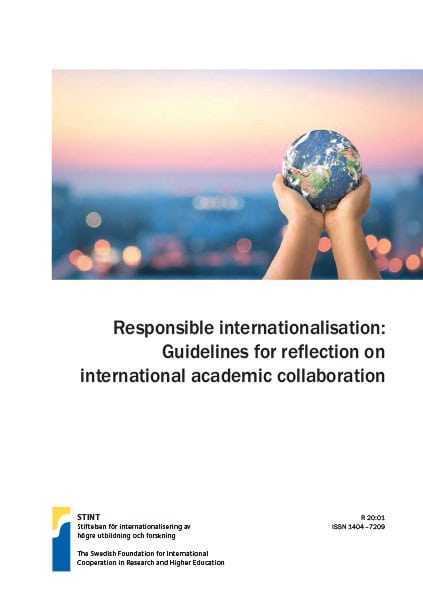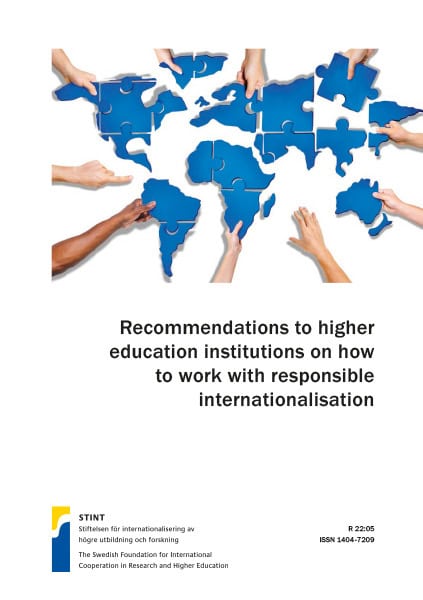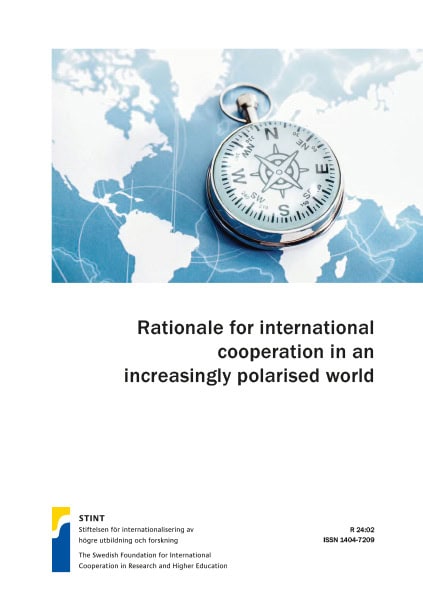Responsible internationalisation
Swedish higher education institutions need to collaborate with the world’s top scientific environments to produce cutting edge research and solve the global societal challenges we face. International cooperation is central to higher education and research because it contributes to higher quality and greater understanding between people. However, it is important that collaboration proceeds responsibly.
International relations are today more complex than ever, which means that researchers, university teachers, leadership and administration need to be even more aware of how international collaborations and relations should be built and managed.
Being responsible involves the consideration of ethical, legal, financial and security aspects. Frequently different goals, such as quality, transparency and security, must be balanced. Making these trade-offs requires extensive knowledge of the international landscape, beyond the area of cooperation itself.
Responsible internationalisation issues arise in a variety of contexts, for instance when selecting collaboration partners, recruiting researchers, teachers and students, accepting funds, receiving visitors from abroad, or sharing data or intellectual property.
STINT drew attention to these issues in its 2020 guidelines. These guidelines have become an important starting point for discussing questions related to responsibility in international collaborations, not only at institutional level, but also at national and international levels.
STINT continues to promote responsible international by providing support in international academic collaborations in Sweden and abroad




